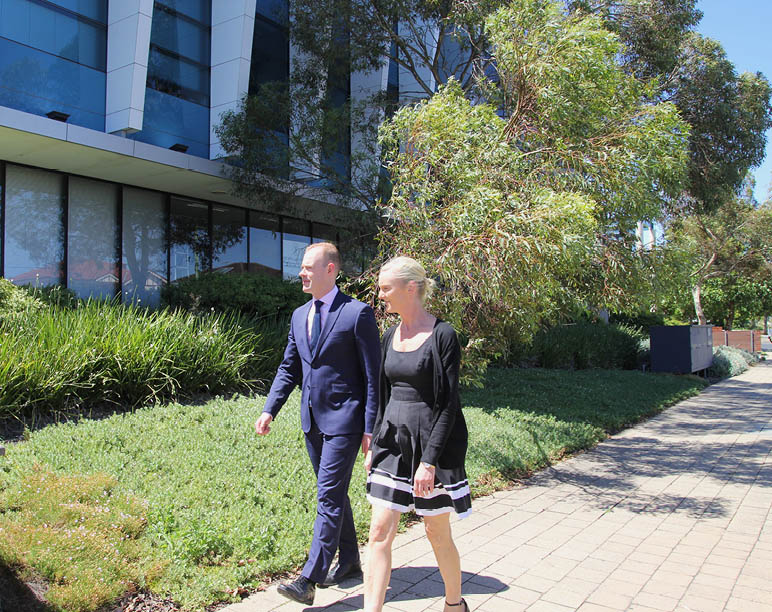The information contained in this article is current as at 3 September 2020. To view information on the latest coronavirus updates, please visit our COVID-19 Updates, Webinars and Resources page or alternatively contact us on (03) 9560 2922 for further information on any recent changes.
The social distancing restrictions that have been introduced in response to the coronavirus pandemic have raised issues regarding the signing of legal documents that require a witness, including affidavits and statutory declarations.
When the Oaths and Affirmations Act 2018 (“the O&A Act”) first came into effect on 1 March 2019, it contained provisions relating to oaths, affirmations, affidavits and statutory declarations. Significantly, there were some key changes introduced relating to affidavits and statutory declaration as follows:
Affidavits
- Whilst the previous requirements for affidavit remain, there was an added requirement for all pages of an affidavit to be signed and any exhibit certificate to be signed by the deponent and affidavit taker
- If the affidavit taker (i.e. the witness) was aware the deponent was illiterate, blind or had a cognitive impairment, the affidavit taker must certify in or below the jurat (or execution section) that they read the affidavit to the deponent
Statutory Declarations
- The list of people who could take statutory declarations increased to include full time employed teachers at schools or tertiary institutions, nurses and some Australian Post staff
- A statutory declaration witness could make reasonable modifications to the process of making a statutory declaration if the person making the statutory declaration had a disability that prevented them from doing so in accordance with the O&A Act
- If the statutory declaration witness was aware the person making the statutory declaration was illiterate, blind or had a cognitive impairment, the statutory declaration witness must certify on the statutory declaration that they read the statutory declaration to the person making the statutory declaration
Impact of COVID-19
The current and on-going COVID-19 pandemic has seen the implementation of social distancing measures, with many people now working and self-isolating at home. Whilst these strategic measures are in place to prevent transmission of the disease in Victoria, it has created certain implications and uncertainty in relation to the signing and witnessing of legal documents.
On Friday, 24 April 2020, the Victorian Government passed the COVID-19 Omnibus (Emergency Measures) Act 2020 (“the Omnibus Act”), which introduced temporary changes to State law in response to relevant issues that arose due to the vastly changing COVID-19 environment and to ensure Victoria’s planning system could continue to operate during the pandemic.
The Omnibus Act, inter alia, made legislative amendments to the O&A Act which respond to various in person requirements and allow for electronic substitutions in regards to witnessing of affidavits, jurats and other documents.
Some of the temporary changes are as follows:
- Part 3.13 of the Omnibus Act inserts a new part 5A into the O&A Act,
- Section 49B allows a deponent or affidavit taker to sign or initial an affidavit, jurat or other document by electronic means,
- Section 49C allows a deponent or affidavit taker to do a thing in relation to an affidavit, jurat or other document, normally required to be done in each other’s presence by means of audio link or audio visual link,
- Section 49D responds to requirements relating to original documents and allows the affidavit taker to sign or initial a scanned hard copy or an electronic copy of the affidavit, jurat or other document,
- Section 49E sets out requirements if a thing is done electronically or by means of audio link or audio visual link, and
- Section 49F provides that the Court may admit an affidavit in evidence where particular requirements have not been fulfilled if it is in the interests of justice to do so, compliance with the requirements was not reasonably practicable and the affidavit states the reasons why compliance with those requirements was not reasonably practicable.
How can Sharrock Pitman Legal help?
Businesses and individuals should stay informed and up to date with any further guidance released by the Victorian government. If you are concerned about your obligations during COVID-19, please contact a member of our Litigation team on 1300 205 506 for a consultation or alternatively visit our COVID-19 updates and resources page for more information.
The information contained in this article is intended to be of a general nature only and should not be relied upon as legal advice. Any legal matters should be discussed specifically with one of our lawyers.
Liability limited by a scheme approved under Professional Standards Legislation.
Caroline Callegari is an Associate Principal and leads our Disputes & Litigation team. She has an advisory and advocacy practice in the following areas: Commercial Litigation, corporate and personal disputes, debt recovery and, insolvency and bankruptcy matters. Caroline can be contacted on (03) 8561 3324.







